On this page
The Australian Early Development Census (AEDC) is a nationwide census of early childhood development. The census provides a snapshot of children’s development from 0 through to 5 years of age within each community.
A child’s earliest experiences have lifelong effect. These early years are crucial in shaping the adults they will become.
The Australian Early Development Census helps schools, communities and governments pinpoint and tailor services and support to help young children and their families.
Children do not need to do anything to be included in the census and will attend class as usual. During the census, teachers record information based on their knowledge and observations of each child in their class.
Data from the collection is compiled and made available publicly. This data does not include any children’s names, ages, addresses or schools. The system used by the AEDC to collect and collate the information is a secure site and children’s information is kept secure at all times.
Why the AEDC is important
The early years are crucial in shaping the adults they will become. In South Australia we want every child to have the best start in life and experience a quality education.
Children’s development is influenced by many factors including:
- family environments
- your community
- government policies
- beliefs and attitudes.
The AEDC gathers information about young children’s development at the time they start full-time school. The information looks at groups of children in the community rather than each individual. It is used by early childhood services, schools, communities and governments to understand what is working well and what needs to be improved to support families and give children the best start in life.
How the data is used
The AEDC measures 5 important areas of early childhood development called domains.
Find out more about the AEDC domains.
These 5 domains are good predictors of adult health, education and social outcomes.
The AEDC can inform education, health and community policy and planning and improve outcomes for children.
For example, a committee of community services in Balaklava came together to respond to their 2009 AEDC community results. They chose to focus on the physical health and wellbeing domain. To improve their results in this area, they created a new community playground and playgroup. Their 2018 AEDC results show more children in this community are developmentally on track by the time they start school.
Find out more about how Balaklava used their AEDC community results.
Tracking community development over time
The following video explains how AEDC data:
- is collected
- can identify challenges for children in your community
- can be used to support your community.
How you can support your child’s development
The experiences children have in their first 5 years are important to shaping their brain development. There are many simple ways you can help your child’s development.
Going to early childhood programs such as playgroup and preschool, and participating in health checks are some ways you can connect with others and support your child’s development.
Read the 5 ‘Supporting early childhood development’ guides for ideas to support your child’s development from birth to 5 years.
Supporting early childhood development guides
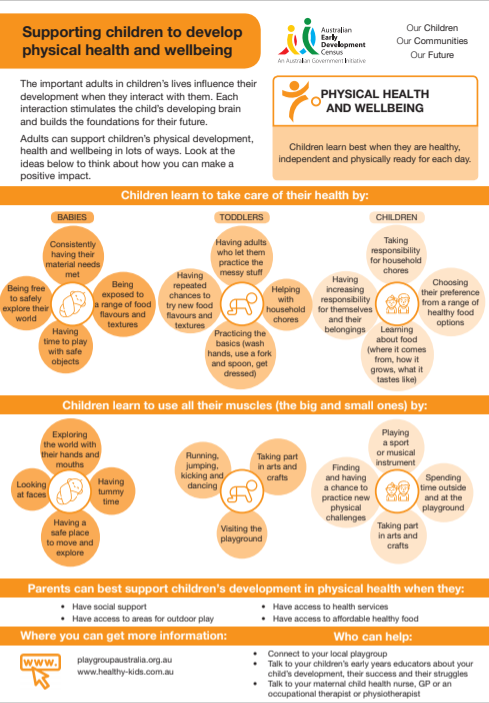
Supporting early childhood development guide: physical health and wellbeing
This fact sheet provides examples of behaviours through which adults can support children’s development of physical health and wellbeing.
Supporting early childhood development guide: physical health and wellbeing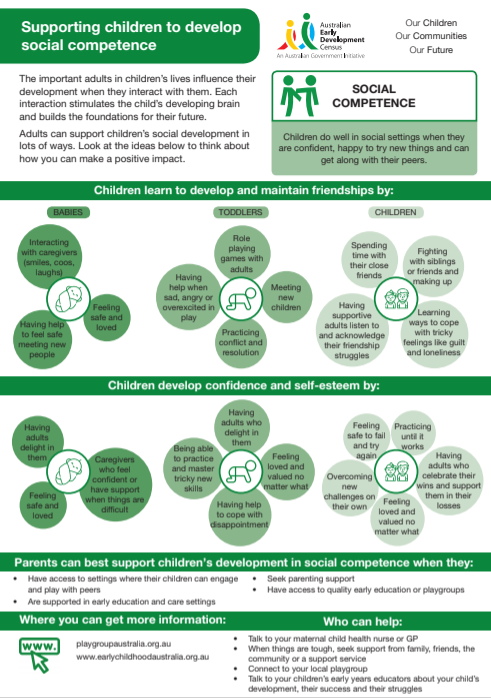
Supporting early childhood development guide: social competence
This fact sheet provides examples of behaviours through which adults can support children’s development of social competence.
Supporting early childhood development guide: social competence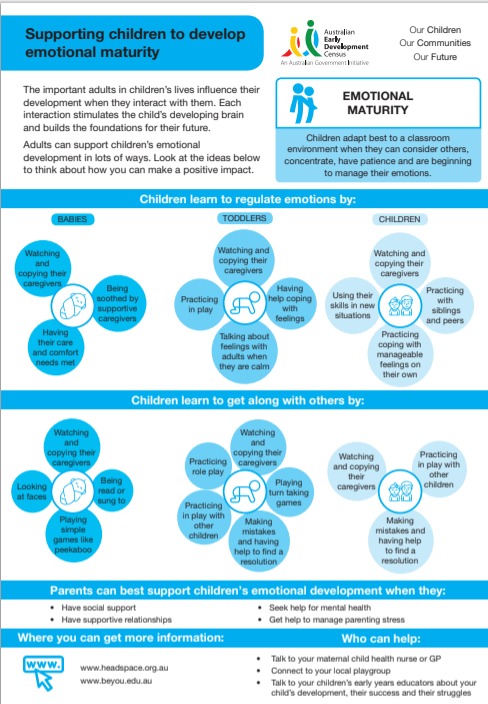
Supporting early childhood development guide: emotional maturity
This fact sheet provides examples of behaviours through which adults can support children’s development of emotional maturity.
Supporting early childhood development guide: emotional maturity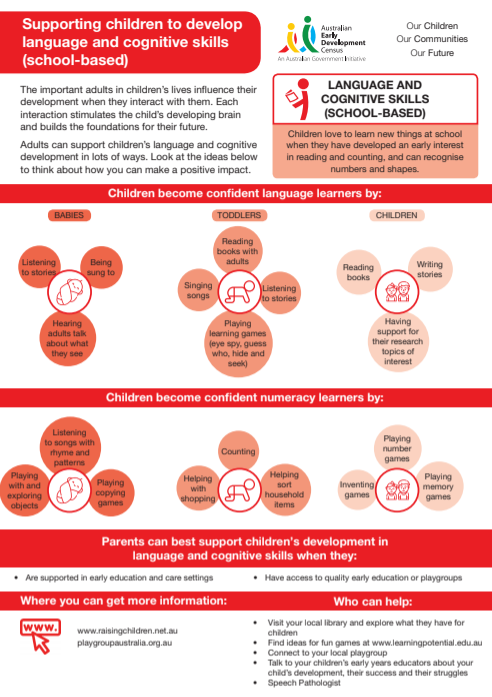
Supporting early childhood development guide: language and cognitive skills (school-based)
This fact sheet provides examples of behaviours through which adults can support children’s development of language and cognitive skills (school-based).
Supporting early childhood development guide: language and cognitive skills (school-based)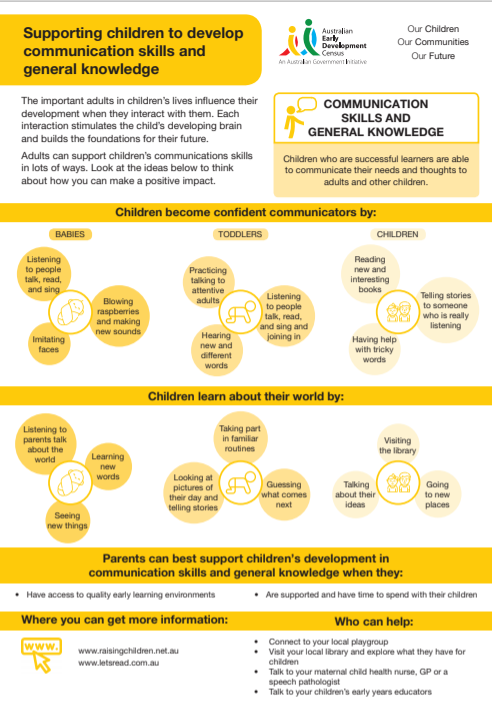
Supporting early childhood development guide: communication skills and general knowledge
This fact sheet provides examples of behaviours through which adults can support children’s development of communication skills and general knowledge.
Supporting early childhood development guide: communication skills and general knowledgeFind ideas of things you can do to help your child’s development:
- Early Years SA app – trusted information about child health, learning, development and wellbeing from birth to 5 years
- Raising Children Network provides parenting videos, articles and apps backed by Australian experts.
- Open your world provides South Australians and their families with valuable resources, tools and information to support improving wellbeing by staying healthy, active and connected.
- Parenting SA has practical guides and short videos about raising children.
- ASK Adults Supporting Kids connects parents and caregivers to information free local support services and other contacts to support children and young people.
- Learning Potential has tips and ideas about helping your child’s learning.
- Starting Blocks provides parents with information about early childhood education and care.
- GreatStart provides everyday ideas for learning.
- Our Learning SA has resources to help families and children to continue learning between school and home.
- The free Bright Tomorrows app has 1000s of ideas to help build a child’s brain.
- The Let's Read website has tips and tools to promote reading with young children.
- Visit the National Disability Insurance Scheme website for information about accessing support if you have concerns about your child’s development.




